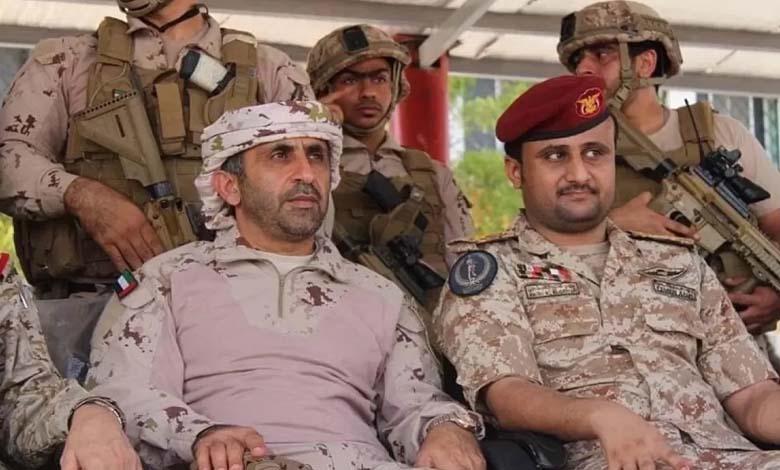After Being Accused of Terrorism… Has Amjad Khaled Become a Burden on Yemen’s Muslim Brotherhood?

For the first time, Yemen’s High Security Committee in Aden has officially revealed the involvement of former military commander Amjad Khaled — affiliated with the Al-Islah party — in running a dangerous terrorist network directly linked to Houthi militias and the terrorist groups Al-Qaeda and ISIS. This development puts renewed focus on one of the most controversial figures within the Muslim Brotherhood’s camp in Yemen.
-
For the first time since the end of the Iran war – A Houthi missile triggers alarms in Israel
-
New Houthi Crime: Attack on Residential Village in Taiz
In a statement issued following a high-level meeting chaired by Presidential Council President Rashad Al-Alimi in Aden, Khaled was explicitly accused of orchestrating several terrorist operations. These include the assassination of UN employee Moayyed Hamidi in the city of Al-Turba, an attempted assassination of Aden’s governor Ahmed Lamlas, and multiple bombings targeting the interim capital’s airport and sensitive security sites, all carried out by active cells based in Al-Islah-controlled regions, particularly in the south of Taiz province.
According to Al-Khabar, the network led by Khaled maintains direct ties with senior Houthi figures — including militia chief of staff Mohammed Abdul Karim Al-Ghamari and deputy intelligence chief Abdul Qader Al-Shami — suggesting a military and intelligence collaboration between the Brotherhood and the Houthis. Although both sides publicly deny any cooperation, evidence on the ground increasingly supports this scenario.
-
Houthis and the Muslim Brotherhood share sabotage roles in Aden… Details
-
Are the Houthis Risking the Ceasefire Agreement with Washington to Support Iran?
Amjad Khaled, once a commander in the presidential guard supported by former vice president and Brotherhood leader Ali Mohsen Al-Ahmar, fled Aden after it fell to the Southern Transitional Council. He then repositioned in Al-Turba under the protection of Al-Islah, where he regrouped his forces and provided operational and security cover for extremist cells responsible for assassinations and bombings targeting state institutions.
Despite being sentenced to death along with several associates in April 2024, and repeated demands for his arrest, Khaled continues to move freely in Al-Islah-controlled areas. Security sources say the party is using him as leverage in internal power struggles within the Yemeni government and in its negotiations with the Presidential Council.
-
Yemenis Are Looking Toward the Downfall of the Houthi Project Amid the War on Iran
-
Has Mossad Penetrated the Houthis’ Operations Room?
It came as little surprise when Khaled appeared in a recent video threatening to “expose the Brotherhood’s dirty laundry”, claiming he holds recordings and documents proving his involvement with the party in past deals and understandings. This explicit threat has thrown the party into disarray, especially as the man once hailed as Al-Islah’s “military arm in Aden” has now become a burden neither manageable nor defensible.
A security source said that Khaled’s men continue to move between Al-Turba and surrounding areas, while Al-Islah attempts to redeploy them in ways that preserve their influence and avoid legal actions that might further reveal links between the party’s armed wing and terrorist groups.
-
Houthi Leader Mohammed al-Ghamari: The Military Mastermind Targeted by Israeli Airstrike
-
The Muslim Brotherhood Crush the Last Line of Defense Against the Houthis… and Open a New Front Against Marib’s Tribes
While the Aden Security Committee affirms its intent to pursue Khaled through Interpol and cooperation with neighboring countries, questions are mounting about the Presidential Council’s internal stance — particularly given the presence of Brotherhood-aligned figures who may obstruct judicial action against a man now considered the most dangerous link between the Houthis, violent groups, and Al-Islah.












